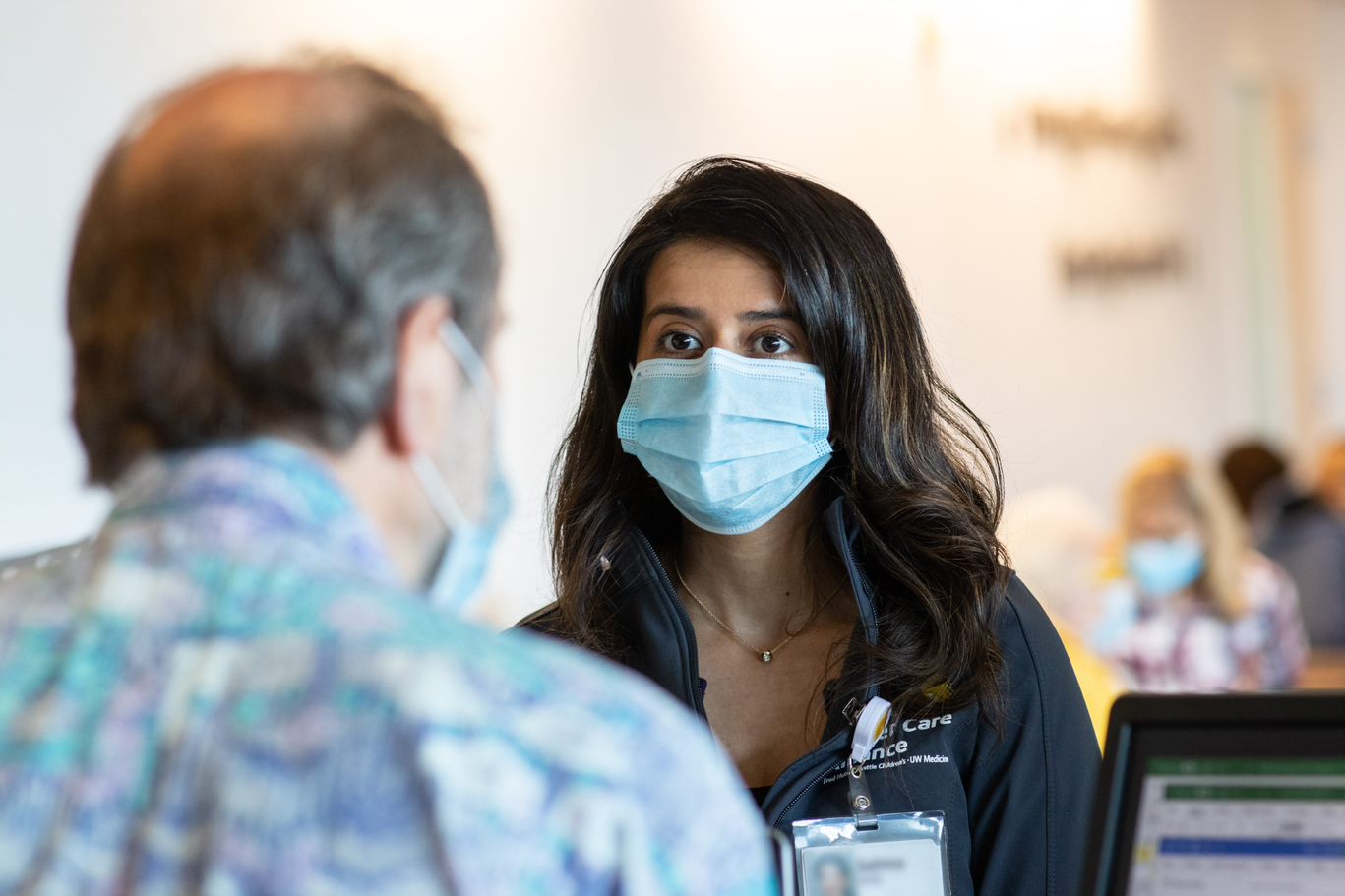Prevention & Detection
Helping assess your cancer risk and increase your chances of early detection

Expert guidance and resources to prevent and detect cancer early.
Screening Saves Lives
Screening can detect cancers early when they’re easier to treat and identify pre-cancers to prevent them from developing.
Genetics and Prevention
Your family history and genetics can identify your risk for some cancers. The genetic counselors at UW Medicine help you know your risk and plan for what’s next.
Health, Lifestyle and Risk
Healthy choices and behaviors like sunblock and exercise can help reduce cancer risk. Explore ways to put your health first.
Some of our common services:
Between 5-10 percent of all cancers are hereditary, which means that changes in specific genes are passed from one blood relative to another. People who inherit one of these gene changes will have a higher risk of developing cancer at some point in their lives.
Genetic researchers at the UW Medicine have created a program to help people know if their families have what’s called a hereditary cancer syndrome or inherited cancer. The genetic testing team looks for specific inherited mutations in a person’s genes that may increase the chance of developing cancer. Our genetic counselors specialize in reviewing your family medical history and help you understand what your test results mean.
Certain types of cancer seem to run in some families. According to the American Cancer Society (ACS), this can be because of behaviors or exposures that increase cancer risk, such as smoking. Cancer risk may also be affected by other factors like obesity. At UW Medicine, cancer prevention experts can help you identify your risk factors and show you how to control or change factors and lower your chance of getting cancer. Many environmental, dietary and lifestyle factors may increase your chances of getting cancer. Staying healthy, though, is your best chance at lowering your risk for cancer. This also means avoiding behaviors that are known to increase risk, like smoking tobacco.
Knowing how and when to be screened for which type of cancer will depend on your age, gender and other risk factors, like family history. The American Cancer Screening guidelines provide recommendations for cancer screening. Talk with your primary care doctor about screening for cancer.
- Breast cancer screening guidelines for women
- Cervical cancer screening guidelines for women
- Colorectal cancer screening guidelines for men and women
- Endometrial (uterine) cancer screening guidelines for women at increased risk
- Liver cancer screening guidelines for men and women at high risk
- Lung cancer screening guidelines for men and women at high risk. To schedule a lung cancer screening, please call 206.606.1434.
- Ovarian cancer screening guidelines for women at increased or high risk
- Prostate cancer screening guidelines for men at high risk
- Skin cancer screening guidelines for men and women at higher risk
